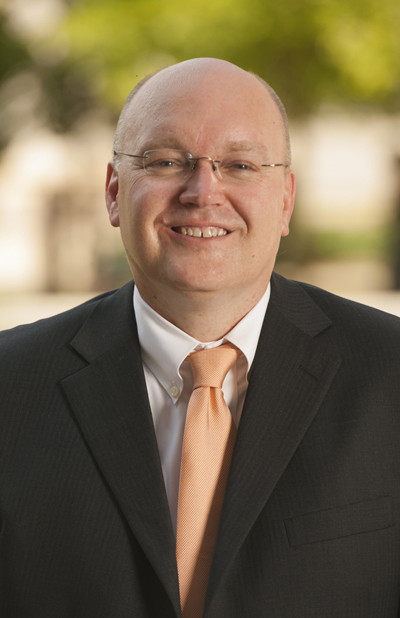 As a typical engineer, my natural tendency is to use quantitative metrics in evaluating the performance of a system. This is particularly true when I consider the tremendous progress that our college has made in the area of research, and the impact that our graduate programs are making even beyond the boundaries of the Auburn campus. However, I would like to take a moment to talk about our graduate research programs without mentioning specific numbers – not that they aren’t impressive. They are.
As a typical engineer, my natural tendency is to use quantitative metrics in evaluating the performance of a system. This is particularly true when I consider the tremendous progress that our college has made in the area of research, and the impact that our graduate programs are making even beyond the boundaries of the Auburn campus. However, I would like to take a moment to talk about our graduate research programs without mentioning specific numbers – not that they aren’t impressive. They are.
Instead, I want to begin by telling you about my typical Mondays. When the semester is in session (and sometimes, when it’s not) I have a four o’clock meeting in my office with a small group of graduate students who are completing their research in my laboratory. In fact, just last week, we gathered to practice the presentations that they were scheduled to give at a national chemical engineering conference. This group includes Ray Xu, a post-doc who is a wonderfully effective lab manager; Jennifer Duggan and Pranav Vengsarker, who are involved in nanoparticle research; Charlotte Stewart and David Roe, both involved in alternate fuels; and Jay Zhong, who is co-advised with Bob Ashurst on the chemical engineering faculty. These students are a constant reminder to me about how wonderful it is to be on the Auburn Engineering faculty and to be able to work with brilliant graduate students in their research.
My interactions with these students also remind me of how important our graduate program is to everyone associated with our college, even our alums who attended Auburn for the baccalaureate degree. Cutting-edge research helps to sustain our teaching programs at the frontier of engineering education, and literally keeps us, as faculty, at the top of our game. When our faculty commit to their research, they commit not only to staying abreast of their field, but they also act as agents of change to move their field forward. It makes a significant difference in how dynamic their own teaching is.
A second factor is the role research plays in moving the state and nation ahead in terms of tomorrow’s economy. That economy – the one with the greatest benefit and with the greatest potential, is technical in nature. We recently took a large group of faculty to Huntsville to interact with the many technology-based companies and agencies in the area, but we could have just as easily found an audience in Mobile, Montgomery or Birmingham. The industries of tomorrow are technology-based industries, even if they don’t appear to be so to the casual observer – indeed, without being specific, they cover a broad range of sectors, from aerospace to transportation, to cyber, to energy and more.
Finally, our graduate research programs affect how we are viewed, and subsequently ranked, by our peers. Like it or not, the national rankings of engineering colleges are largely based on research performance. Our peers look to our research because they know – as I have suggested above – that the best engineering faculty are excellent researchers as well as excellent teachers. And they look, if you will, to the students in our graduate program as they publish their scholarly work and present their findings at national conferences. They judge our graduates for the depth and breadth of the knowledge they take with them.
As I look across my table to Ray, Jennifer, Pranav, Charlotte, David and Jay, I know that our peers will find in Auburn’s graduate students superior preparation as well as innovation and technical abilities second to none. I am glad to be a part of this process. I hope you will also be invested in supporting our graduate research program – it is making a difference for tomorrow. In this issue of Auburn Engineering, we touch on a number of interesting research areas – I hope you enjoy reading about them.